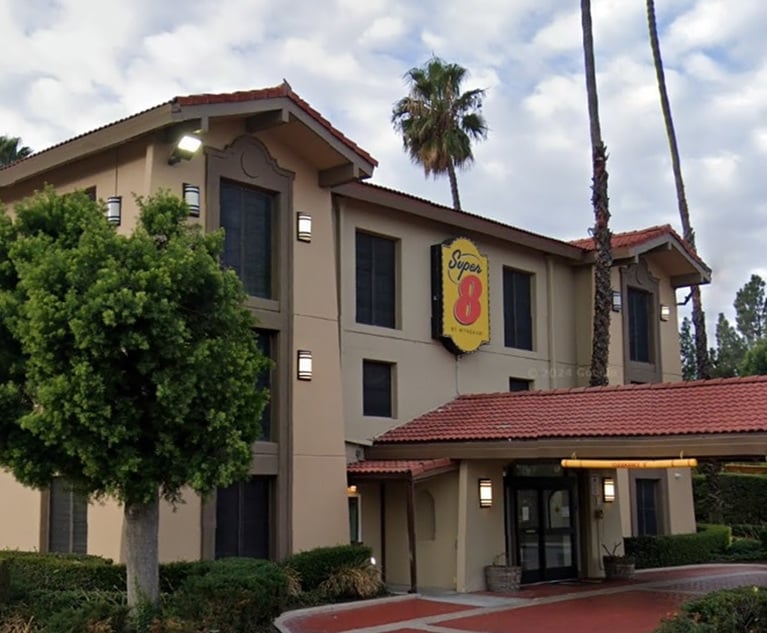Unpublished Opinions for the Week of August 28, 2017
01-2-4060 In the Matter of Russell S. Cline, N.J. Super. App. Div. (per curiam) (16 pp.) Russell Cline appealed from the final agency decision of the…
August 26, 2017 at 12:16 AM
64 minute read
01-2-4060 In the Matter of Russell S. Cline, N.J. Super. App. Div. (per curiam) (16 pp.) Russell Cline appealed from the final agency decision of the Motor Vehicle Commission, which approved the suspension of his driver's registration privileges, and conditioned reinstatement upon his satisfaction of unpaid tolls and administrative fees owed to the New Jersey Turnpike Authority. Cline had accrued unpaid tolls by using an E-ZPass lane while the credit card linked to his account repeatedly declined payment. During this period, the account was also closed for being underfunded, as provided for in the E-ZPass contract. Thereafter, MVC notified Cline it would suspend his privileges unless he paid all outstanding tolls and administrative fees. Cline requesting a hearing, claiming the fees were erroneous. At a hearing before an ALJ, a manager for Xerox, the company contracted to run the E-ZPass system in New Jersey, testified that his company had a record of the date, time, and location of each of Cline's toll violations, and further testified that it charged a $25 (later increased to $50) administrative fee for each toll violation to cover the costs of enforcing violations, such that Cline had amassed $912 unpaid tolls and $12,200 in associated administrative fees. Cline asserted that MVC's records were incomplete, noting inconsistent dates between records of violations and notices he received in the mail, and argued that he could not afford the administrative fees and should not have been obligated to pay them due to the late notices. On appeal, the court affirmed the suspension of Cline's registration pending satisfaction of the outstanding tolls, finding that he had sufficient notice and was not prejudice by the delay in the administrative hearing. However, the court remanded for further development of evidence to sustain the amount of administrative fees, finding that the record failed to support the amount of the fee as matching the actual cost of violation enforcement.
09-2-4093 Kaufman v. Lumber Liquidators, Inc., N.J. Super. App. Div. (per curiam) (5 pp.) Appellants filed a putative class action suit alleging respondents failed to include a precise delivery date language on its sales invoices in violation of the Truth-in-Consumer Contract, Warrant and Notice Act as well as the Consumer Fraud Act and N.J.A.C. 13:45A-5.1 to 5.4. Plaintiffs did not allege any defects or deficiencies or that they suffered actual damages; plaintiffs only sought statutory civil penalties for each alleged violation and attorneys' fee. On motion, the law division granted dismissal as a matter of law for failure to state a claim upon which relief could be granted. The law division judge concluded “a plain reading” of N.J.A.C. 13:45A-5.1(d) showed the term “household furniture” did not include hardwood flooring and found no reason to include nonmoveable improvements to real property in the regulatory definition of “household furniture.” The dispositive issue on appeal was whether the hardwood flooring appellants purchased constituted “household furniture” under N.J.A.C. 13:45A-5.1(d). On appeal, the court affirmed holding the long-established canon of ejusdem generis provided that “where general words follow specific words in a statutory enumeration, the general words are construed to embrace only objects similar in nature to those objects enumerated by the preceding specific words.” Wilson ex rel. Manzano v. City of Jersey City, 209 N.J. 558, 584 (2012) The objects provided to illustrate the limits of the regulation's reach clearly excluded items such as hardwood floors which constituted permanent improvements to property. Accordingly, the court affirmed.
11-2-4061 Dexter & Kilcoyne, Esqs. v. Arturi, N.J. Super. App. Div. (per curiam) (9 pp.) Law firm appealed the dismissal of its suit against second law firm for a share of the fees from a personal injury case. Injured client hired first law firm to represent her on a contingency basis but discharged that firm and hired second firm which reached a settlement in the suit. First firm represented client for almost a year and obtained her medical records, spoke with potential expert witnesses, obtained key physical evidence, corresponded with manufacturer of defective product and prepared a form of complaint. First firm sent second firm the client file and a copy of the invoice for the hours spent and the disbursements made. Second firm asserted it had no obligation to share any portion of the fee or the client's recovery with first firm. First firm claimed a lien on the client's recovery and recovery of the reasonable value of its services. The trial judge found that the controlling law offered first firm no recourse. The court agreed that first firm had no basis to assert a lien but was entitled to the quantum meruit value of its services. Its efforts were not manifestly “incidental' and the reasonable value of the services implicated genuine issues of fact that should not have been resolved through summary judgment.
This content has been archived. It is available through our partners, LexisNexis® and Bloomberg Law.
To view this content, please continue to their sites.
Not a Lexis Subscriber?
Subscribe Now
Not a Bloomberg Law Subscriber?
Subscribe Now
NOT FOR REPRINT
© 2025 ALM Global, LLC, All Rights Reserved. Request academic re-use from www.copyright.com. All other uses, submit a request to [email protected]. For more information visit Asset & Logo Licensing.
You Might Like
View All



Trending Stories
Who Got The Work
J. Brugh Lower of Gibbons has entered an appearance for industrial equipment supplier Devco Corporation in a pending trademark infringement lawsuit. The suit, accusing the defendant of selling knock-off Graco products, was filed Dec. 18 in New Jersey District Court by Rivkin Radler on behalf of Graco Inc. and Graco Minnesota. The case, assigned to U.S. District Judge Zahid N. Quraishi, is 3:24-cv-11294, Graco Inc. et al v. Devco Corporation.
Who Got The Work
Rebecca Maller-Stein and Kent A. Yalowitz of Arnold & Porter Kaye Scholer have entered their appearances for Hanaco Venture Capital and its executives, Lior Prosor and David Frankel, in a pending securities lawsuit. The action, filed on Dec. 24 in New York Southern District Court by Zell, Aron & Co. on behalf of Goldeneye Advisors, accuses the defendants of negligently and fraudulently managing the plaintiff's $1 million investment. The case, assigned to U.S. District Judge Vernon S. Broderick, is 1:24-cv-09918, Goldeneye Advisors, LLC v. Hanaco Venture Capital, Ltd. et al.
Who Got The Work
Attorneys from A&O Shearman has stepped in as defense counsel for Toronto-Dominion Bank and other defendants in a pending securities class action. The suit, filed Dec. 11 in New York Southern District Court by Bleichmar Fonti & Auld, accuses the defendants of concealing the bank's 'pervasive' deficiencies in regards to its compliance with the Bank Secrecy Act and the quality of its anti-money laundering controls. The case, assigned to U.S. District Judge Arun Subramanian, is 1:24-cv-09445, Gonzalez v. The Toronto-Dominion Bank et al.
Who Got The Work
Crown Castle International, a Pennsylvania company providing shared communications infrastructure, has turned to Luke D. Wolf of Gordon Rees Scully Mansukhani to fend off a pending breach-of-contract lawsuit. The court action, filed Nov. 25 in Michigan Eastern District Court by Hooper Hathaway PC on behalf of The Town Residences LLC, accuses Crown Castle of failing to transfer approximately $30,000 in utility payments from T-Mobile in breach of a roof-top lease and assignment agreement. The case, assigned to U.S. District Judge Susan K. Declercq, is 2:24-cv-13131, The Town Residences LLC v. T-Mobile US, Inc. et al.
Who Got The Work
Wilfred P. Coronato and Daniel M. Schwartz of McCarter & English have stepped in as defense counsel to Electrolux Home Products Inc. in a pending product liability lawsuit. The court action, filed Nov. 26 in New York Eastern District Court by Poulos Lopiccolo PC and Nagel Rice LLP on behalf of David Stern, alleges that the defendant's refrigerators’ drawers and shelving repeatedly break and fall apart within months after purchase. The case, assigned to U.S. District Judge Joan M. Azrack, is 2:24-cv-08204, Stern v. Electrolux Home Products, Inc.
Featured Firms
Law Offices of Gary Martin Hays & Associates, P.C.
(470) 294-1674
Law Offices of Mark E. Salomone
(857) 444-6468
Smith & Hassler
(713) 739-1250






